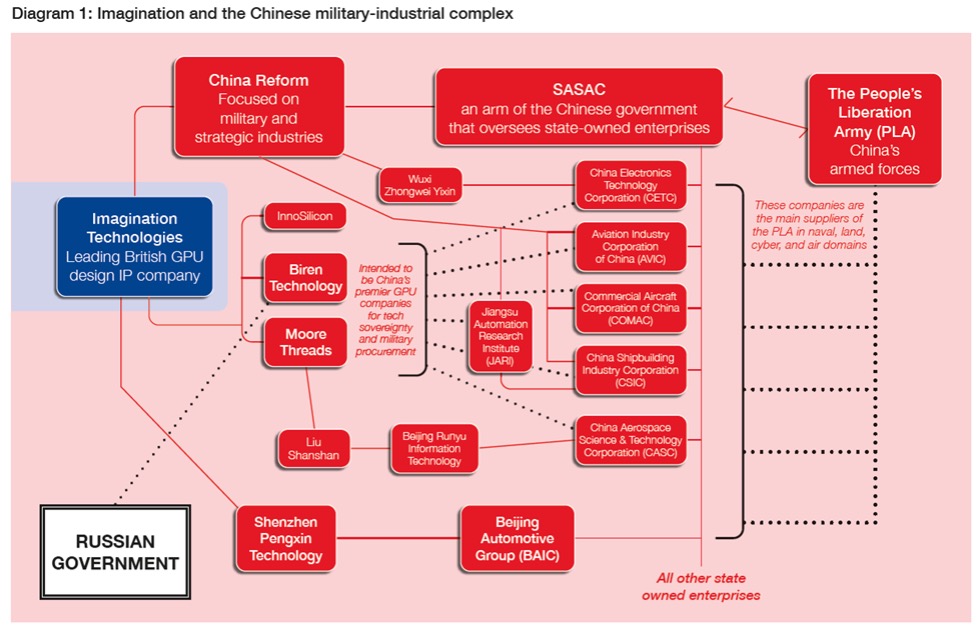A UK-China Transparency report raises concerns that Imagination Technologies may have aided Chinese companies in developing advanced GPU technology, despite US export restrictions. Imagination sold licenses to Moore Threads and Biren Technology, which are restricted due to potential military use. The licenses included technology transfer arrangements and training, sparking concerns that Imagination’s tech may be used for military purposes. This could impact US GPU makers AMD and Nvidia, potentially cutting into their market share and revenue in China.

As the Biden administration put export restrictions on US companies about exporting advanced AI tech to China, UK-based Imagination Technologies may have been showing the Chinese how to build their own.
According to articles in The Guardian and The Telegraph, a new report by the research organization UK-China Transparency raises further questions about Chinese companies. Imagination Technologies, after getting an $800 million financial infusion from the Chinese-funded investment firm Canyon Bridge, sold architectural licenses for advanced GPU designs to two Chinese GPU start-ups—Moore Threads and Biren Technology. Both companies are subject to US export restrictions over their development of chips that “can be used to provide artificial intelligence capabilities to further development of weapons of mass destruction, advanced weapons systems and high-tech surveillance applications that create national security concerns.”

Both companies’ deals included extensive technology transfer arrangements. Former senior Imagination insiders claim that “knowledge transfer programs” accompanying the licenses were so comprehensive that they risked the Chinese companies learning how to replicate Imagination’s expertise. One believed that the information provided meant Imagination may “have given [the Chinese companies] the capability to make the technology.”
As part of the plan, Imagination’s senior engineers would provide their Chinese counterparts with comprehensive, step-by-step training on GPU development over a two-year period, starting around 2021.
Imagination Technologies claims its products aren’t suited for military use and that its contracts explicitly prohibit such applications. However, cybersecurity expert Alan Woodward from the University of Surrey notes that it’s challenging for companies like Imagination to ensure their technology doesn’t inadvertently contribute to military projects, such as autonomous drones.
Nonetheless, the licenses grant customers the flexibility to request custom modifications to the designs. In turn, Imagination provides a glimpse into the meticulous process its engineers undertook to develop the complex blueprints over several years.
A spokesperson for Imagination said: “At no stage has Imagination (or its owners) considered or implemented transactions with third parties with the aim of enabling China or any other nation-state to use or direct Imagination technology for state or military end uses.
If China can, with the fabs it has, make state-of-the-art GPUs, that will also cut into AMD’s and Nvidia’s data center GPU sales. In either case, the leading two US GPU makers will lose market share and revenue in China.
LIKE WHAT YOU’RE READING? INTRODUCE US TO YOUR FRIENDS AND COLLEAGUES.